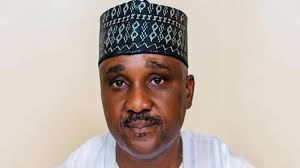
The Speaker of the Nigerian House of Representatives, Abass, has raised serious concerns over Nigeria’s rapidly growing national debt, which has now reached a staggering ₦149 trillion under President Bola Tinubu’s administration. The Speaker described this borrowing spree as reckless and warned that it threatens the country’s economic stability and future prosperity.
The Growing Debt Burden
Nigeria’s debt includes both domestic and external loans, and it has ballooned over the past few years. While borrowing can be a useful tool for funding critical infrastructure and development projects, the Speaker emphasized that borrowing without clear planning, accountability, and strategic investment could lead Nigeria into a dangerous debt trap. This could limit the government’s ability to fund essential public services and place a heavy burden on future generations.
The Speaker said:
“We are heading toward a debt trap. Reckless borrowing without proper planning and accountability will cripple the nation’s economy and burden generations to come.”
What Nigerians Should Know
Nigeria’s Debt Has Hit ₦149 Trillion
This figure combines money borrowed both from foreign creditors and local lenders. The rapid increase calls for careful scrutiny.
Reckless Borrowing Can Harm the Economy
Borrowing without clear plans or transparency can lead to mismanagement and worsen economic problems rather than solving them.
Borrowing Isn’t Bad, But Must Be Managed Wisely
Loans can help develop infrastructure and boost the economy if invested in revenue-generating projects. Mismanagement or corruption wastes these resources and increases the debt burden.
Impact on Citizens
A growing debt burden can result in higher taxes, inflation, and cuts to vital social services such as healthcare, education, and security.
Debt Repayment Limits Economic Flexibility
More government revenue will go to paying back debts and interest, reducing funds available for programs that directly benefit the people.
Need for Transparency and Accountability
Citizens must demand openness from the government about borrowing details and ensure funds are used efficiently and for the public good.
Long-term Consequences
If debt continues to rise unchecked, Nigeria risks losing economic sovereignty and becoming vulnerable to conditions imposed by lenders, which can restrict policy options.
Public Engagement is Crucial
Nigerians should stay informed, ask tough questions, and hold their leaders accountable to ensure borrowing is done responsibly and sustainably.
Public and Expert Reactions
The Speaker’s concerns have sparked widespread discussion among Nigerians and economic analysts. Many citizens feel the warning is overdue, emphasizing that the government must prioritize fiscal discipline and transparency. Others acknowledge that borrowing is sometimes necessary but stress the importance of prudent management.
Social media users have expressed mixed views:
“It’s about time someone spoke up. Our children will pay for this careless spending.”
“Borrowing isn’t bad if it’s invested wisely. The problem is mismanagement.”
“The government must prioritize debt repayment plans to avoid economic collapse.”
Economic experts warn that without strong reforms, Nigeria could face a severe debt crisis that would hamper growth and worsen living conditions.
The House of Representatives Speaker’s criticism highlights a critical challenge facing Nigeria today. While borrowing can be a powerful tool for national development, it must be undertaken with responsibility, transparency, and a focus on long-term sustainability. Failure to do so risks plunging Nigeria into a financial crisis that could compromise the well-being of future generations.
As Nigerians follow this unfolding issue, it is vital they demand accountability, stay informed, and push for policies that balance borrowing with economic stability and growth.




